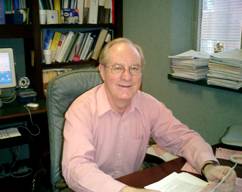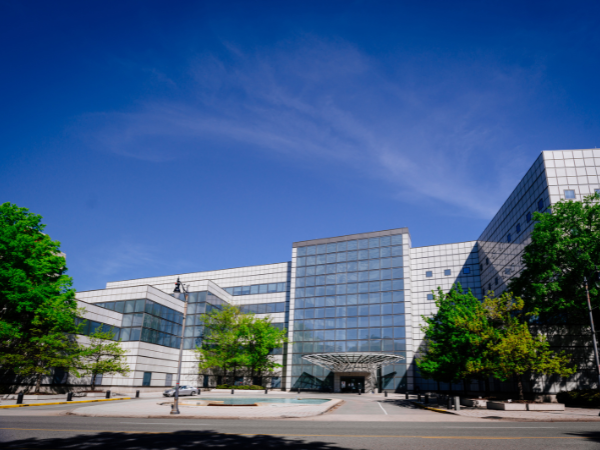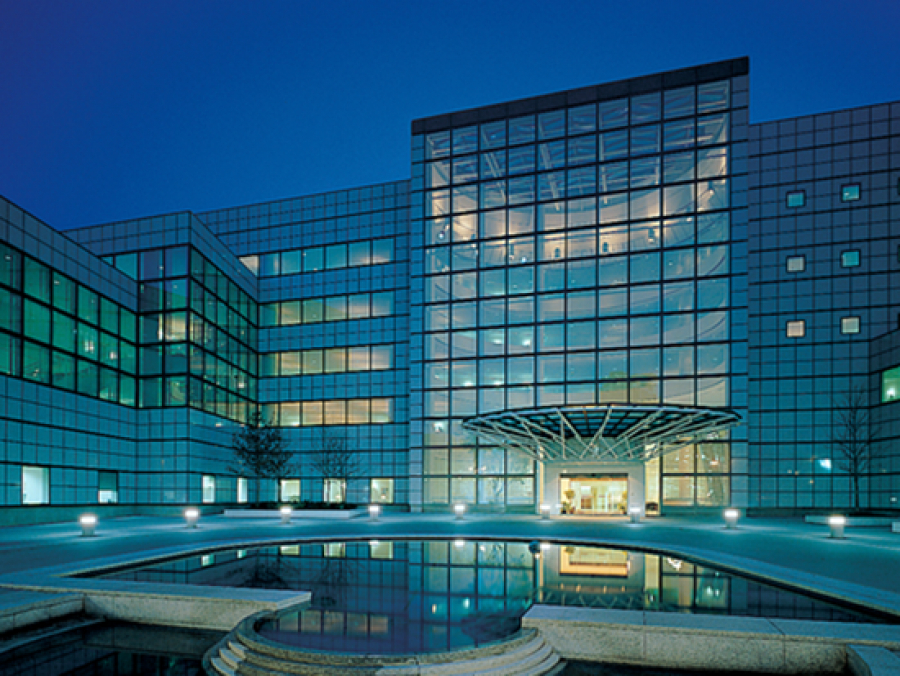|
Charles O. Elson III, M.D. |
 |
Dr. Elson received his B.A. in pre-medical sciences/general sciences from Notre Dame and his M.D. from Washington University, St. Louis. He then completed residency in internal medicine at Cornell and a gastroenterology fellowship at the University of Chicago. After a postdoctoral fellowship in the Metabolism Branch, NCI, NIH, he joined the faculty of the Department of Medicine at the Medical College of Virginia. In 1987, he was recruited to UAB, serving as the Director, Division of Gastroenterology, Department of Medicine until 2001. Dr. Elson is currently serving as the Vice Chair for Research in the Department of Medicine. He has a secondary appointment in the Department of Microbiology and holds the Basil I. Hirschowitz Chair in Gastroenterology.
The central focus of research in Dr. Elson’s laboratory is the regulation of mucosal immune responses and more specifically how such regulation relates to maintenance of normal homeostasis, as well as how it contributes to states of chronic intestinal inflammation. Work in his laboratory has focused on several major areas relevant to this central theme. The first area is the mechanism of action of cholera toxin as a mucosal immunogen and adjuvant, with the long term aim to use this knowledge to develop effective mucosal vaccines. The second area of interest is oral tolerance. Studies from his laboratory have recently shown that oral tolerance exists in humans, and he is currently studying the mechanisms involved in mouse models, particularly identification of the cells that are induced by antigen feeding and the cytokines that they produce. The latter studies are currently directed at understanding the role of regulatory CD4+ T cells, a recently recognized subset that appears to maintain peripheral tolerance. The third area is the role of mucosal T cells in chronic intestinal inflammation. These studies utilize a number of novel mouse models of colitis, such as the C3H/HeJBir substrain, which spontaneously develops colitis, as well as the IL-10 knockout mouse. These studies focus on T cells that either mediate or prevent disease, particularly those that are reactive to enteric bacterial antigens. The ultimate aim is to understand the cellular and cytokine mechanisms involved in effective mucosal immunoregulation so that these can be manipulated, to induce either immunity or tolerance.
Selected Publications
- Elson, C.O. Genes, microbes, and T cells-new therapeutic targets in Crohn’s disease. New Engl. J. Med. 346:614-616, 2002.
- Cong, Y, Weaver, C.T., Lazenby, A., and Elson, C.O. Bacterial-reactive T regulatory cells inhibit pathogenic immune responses to the enteric flora. J. Immunol. 169(11):6112-6119, 2002.
- Iqbal, N., Oliver, J.R., Wagner, F.H., Lazenby, A.S., Elson, C.O. and Weaver, C.T. T helper 1 and T helper 2 cells are pathogenic in an antigen-specific model of colitis. J. Exp. Med. 195:71-84, 2002.
- Elson, C.O., Sartor ,R.B., Targan, S.R. and Sandborn, W.J. Challenges in IBD Research: updating the scientific agendas. Inflamm. Bowel Dis. 9:137-153, 2003.
- Dooley, T.P., Curto, E.V., Reddy, S.P., Davis, R.L., Lambert, G.W., Wilborn, T.W., Elson, C.O., et al. Regulation of gene expression in inflammatory bowel disease and correlation with IBD drugs: screening by DNA microarrays. Inflamm. Bowel Dis. 10:1-14, 2004.
- Lodes, M.J., Cong, Y., Elson, C.O., Mohamath, R., Landers, C.J., Targan, S.R., Fort, M. and Hershberg, R.M. Bacterial flagellin is a dominant antigen in Crohn’s disease. J. Clin. Invest. 113:1296-1306, 2004.
- Mannon, P.J., Fuss, I.J., Mayer, L., Elson, C.O., Sandborn, W.J., Present, D., Dolin, B., Goodman, N., Groden, C., Hornung, R.L., Quezado, M., Neurath, M.F., Salfeld, J., Veldman, G.M., Schwertschlag, U. and Strober, W. Anti-IL-12 Crohn’s Disease Study Group. Anti-interleukin-12 antibody for active Crohn’s disease. N. Engl. J. Med.. 11:2069-2079, 2004.
- Kubo, T., Hatton, R.D., Oliver, J., Liu, X., Elson, C.O. and Weaver, C.T. Regulatory T cell suppression and anergy are differentially regulated by proinflammatory cytokines produced by TLR-activated dendritic cells. J. Immunol. 173:7249-58, 2004.
- Moldoveanu, Z., Oliver, F., Mestecky, J. and Elson, C.O. Oral tolerance in humans: failure to suppress an existing immune response by oral antigen administration. Ann. N.Y. Acad. Sci. 1029:299-309, 2004.
- Cong, Y., Konrad, A., Iqbal, N., Hatton, R.D., Weaver, C.T. and Elson, C.O. Generation of antigen-specific, Foxp3-expressing CD4+ regulatory T cells by inhibition of antigen presenting cell proteosome function. J. Immunol. 174:2787-2795, 2005.





